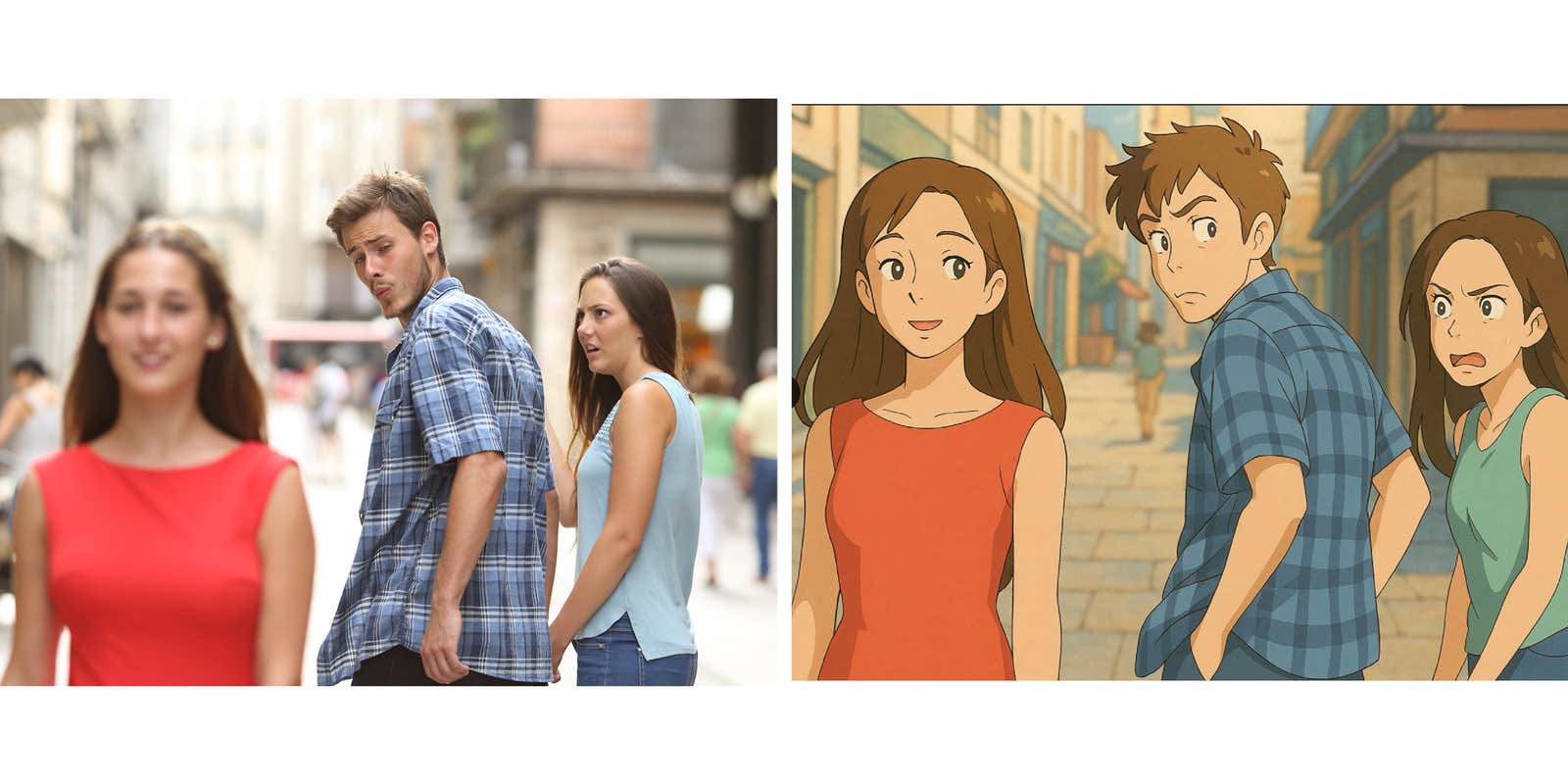Folks across social media are using ChatGPT’s latest model, GPT-4o, to transform ordinary photos into dreamy, Studio Ghibli-inspired anime illustrations. OpenAI’s newly expanded image generation tool—called ‘Images in ChatGPT’—is now integrated directly into the LLM, making it easy for users to create AI-generated scenes with a simple prompt.
The result is a flood of Ghibli-style reimaginings, from personal portraits to iconic memes, raising both excitement and questions about the future of art in the age of AI.
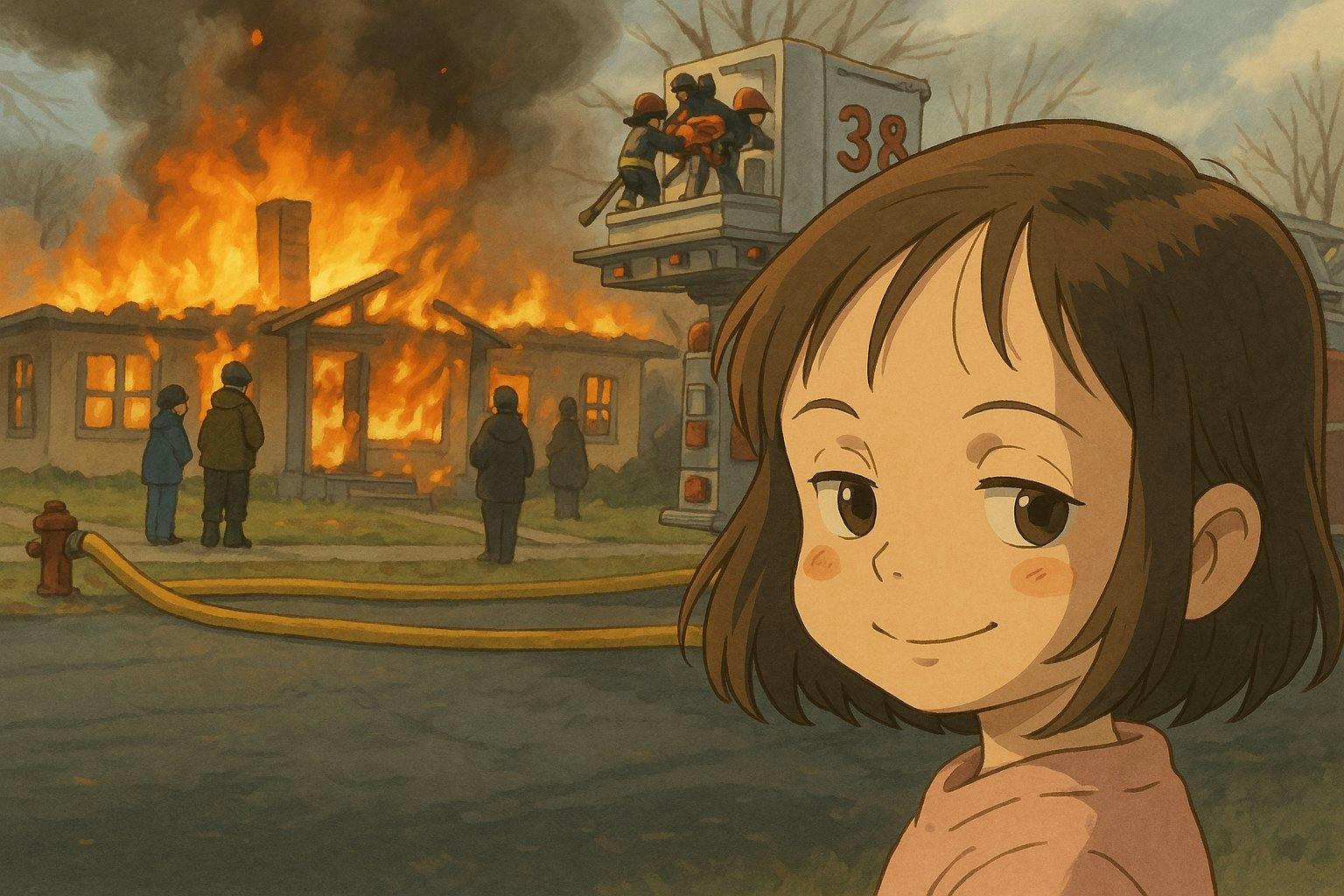
The upgraded GPT-4o model has also been called “omnimodal,” meaning it accepts input of any sort of media—text, image, audio, video—and can generate any combination of the aforementioned. Very quickly.
As a result, a Studio Ghibli photo trend across X (formerly Twitter) and other social media platforms emerged as users began transforming their photos into anime images reminiscent of the iconic illustration style.
tremendous alpha right now in sending your wife photos of yall converted to studio ghibli anime pic.twitter.com/FROszdFSfN
— Grant Slatton (@GrantSlatton) March 25, 2025
How to turn photos into Studio Ghibli-style drawings
According to @petergyang on X, formerly known as Twitter, it is very easy to create Studio Ghibli-style images from photographs. All it takes is a paid version of ChatGPT, a photo, and the prompt “Make this Ghibli anime style.” He shares examples of photos before the prompt and the illustration-style AI artwork generated by the LLM.
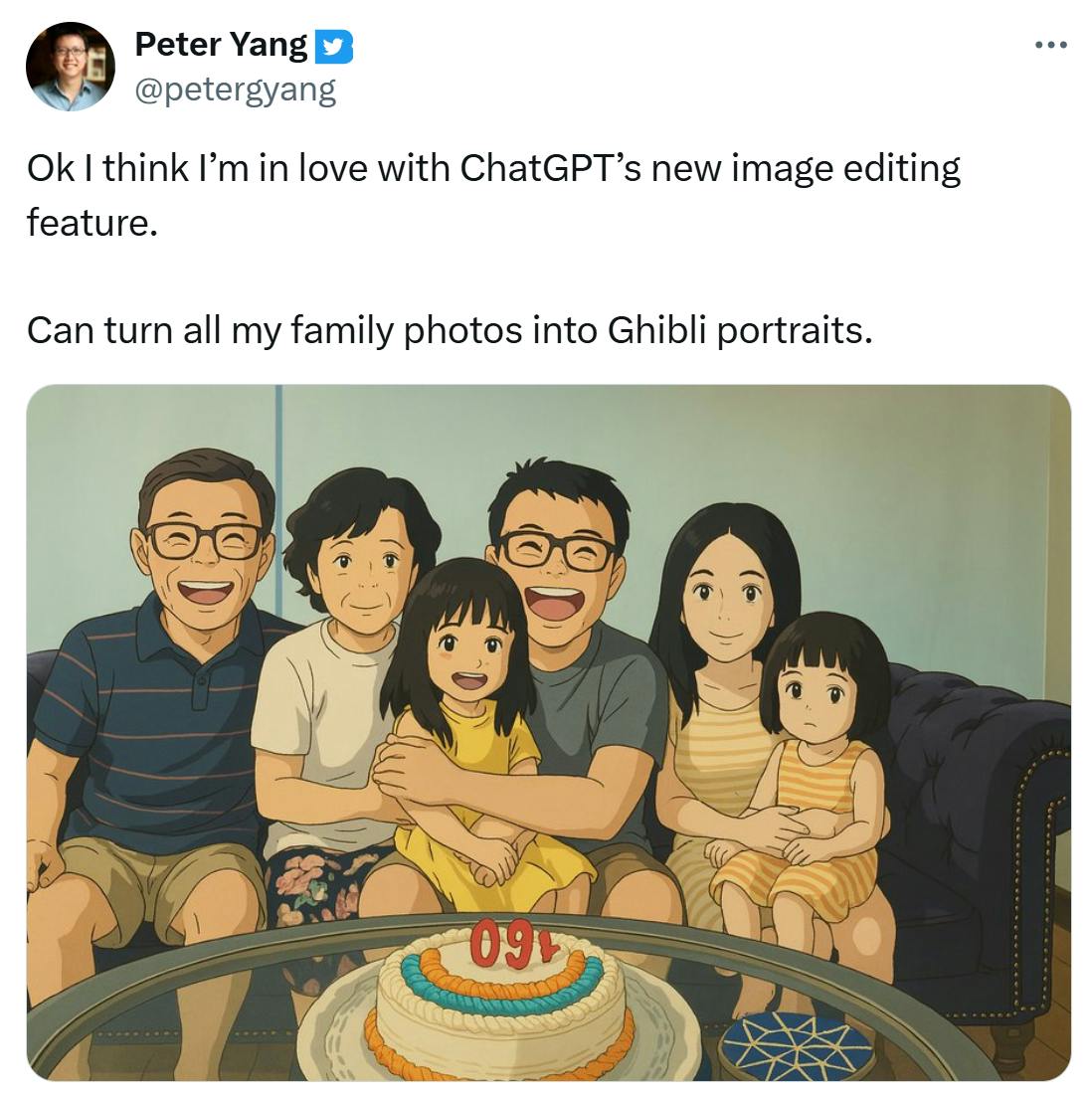
This process enables users to create personalized illustrations reminiscent of Studio Ghibli’s aesthetic.
If this isn’t magic I don’t know what is pic.twitter.com/6GzctGZR1I
— Peter Yang (@petergyang) March 26, 2025
Some people have not been able to replicate @petergyang’s prompt, however, and are told that it is out of ChatGPT’s scope.
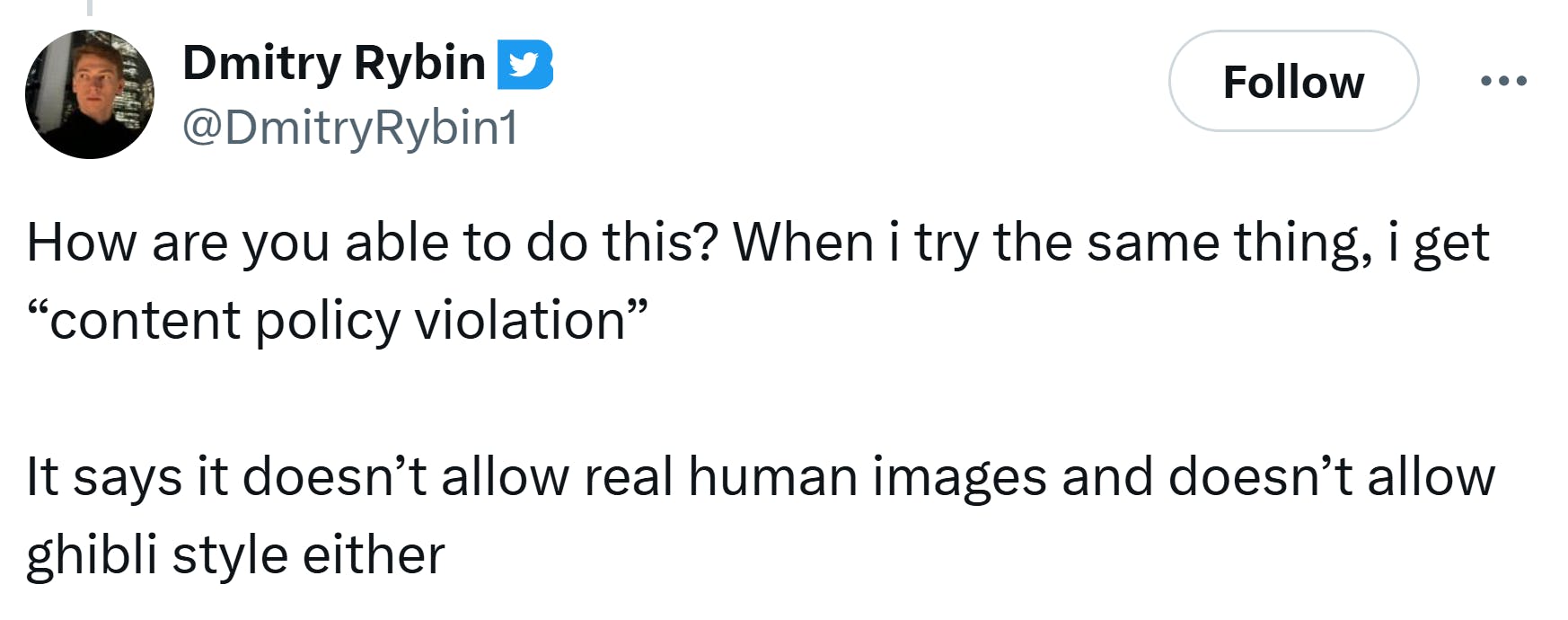

Folks have taken the opportunity to turn memes and historical moments into Studio Ghibli scenes with this new feature, including the Olympics shooter Yusuf Dikec meme, the Disaster Girl meme, and the Distracted Boyfriend meme.


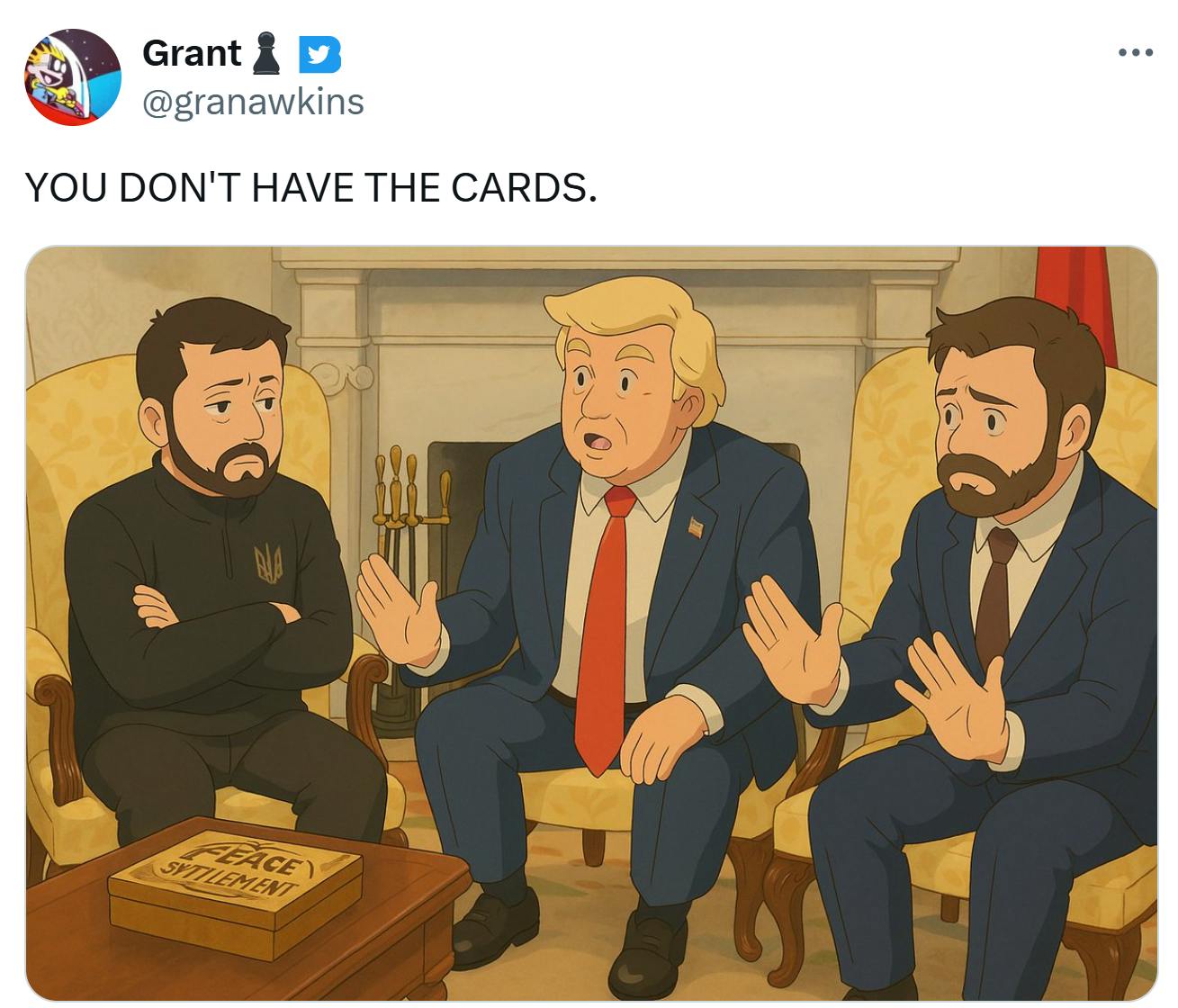
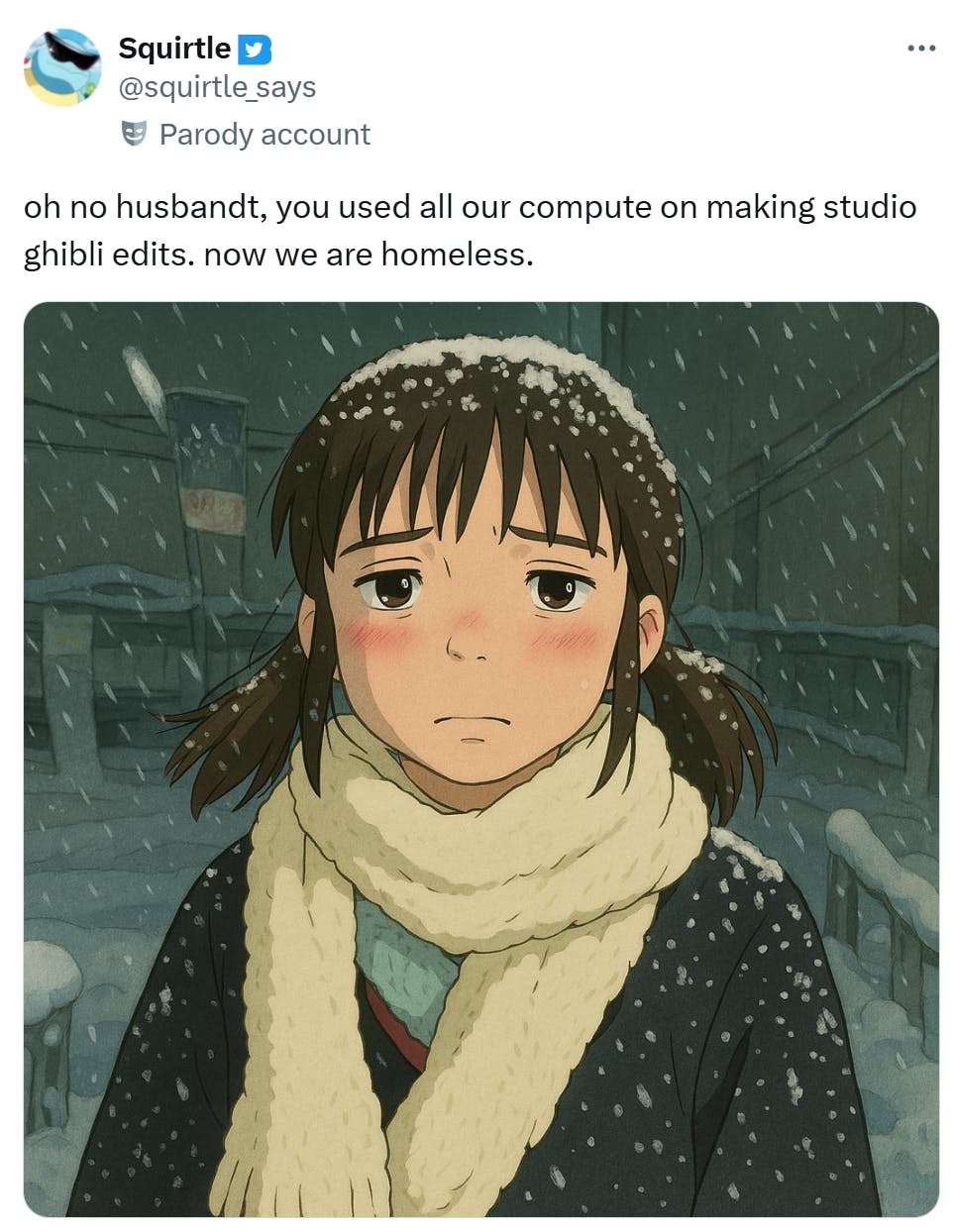
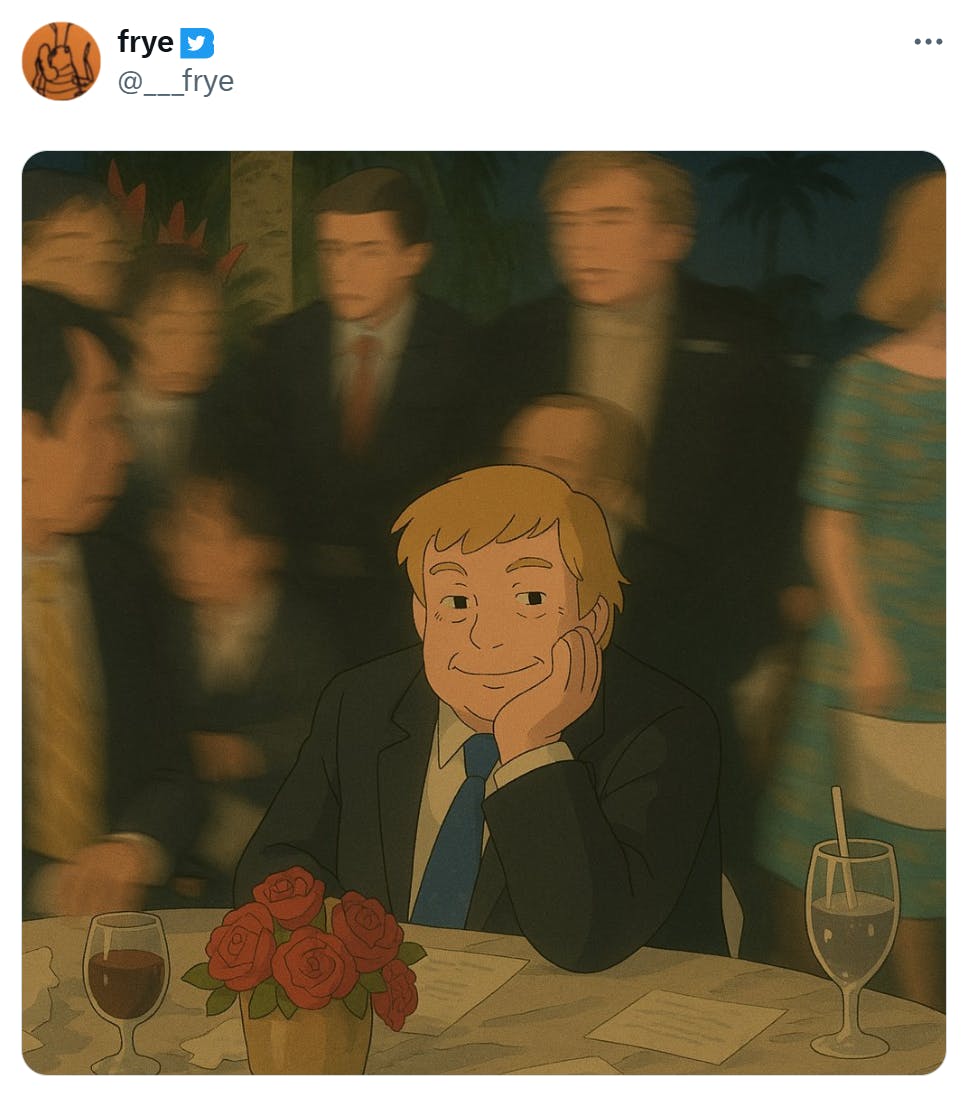
ChatGPT when another Studio Ghibli request comes in pic.twitter.com/NF5sy24GlU
— Justine Moore (@venturetwins) March 26, 2025
— Alex Svanevik(@ASvanevik) March 26, 2025
There are also people doing the reverse— Turning drawn memes into realistic-looking photographs of people, such as the Wifejak.
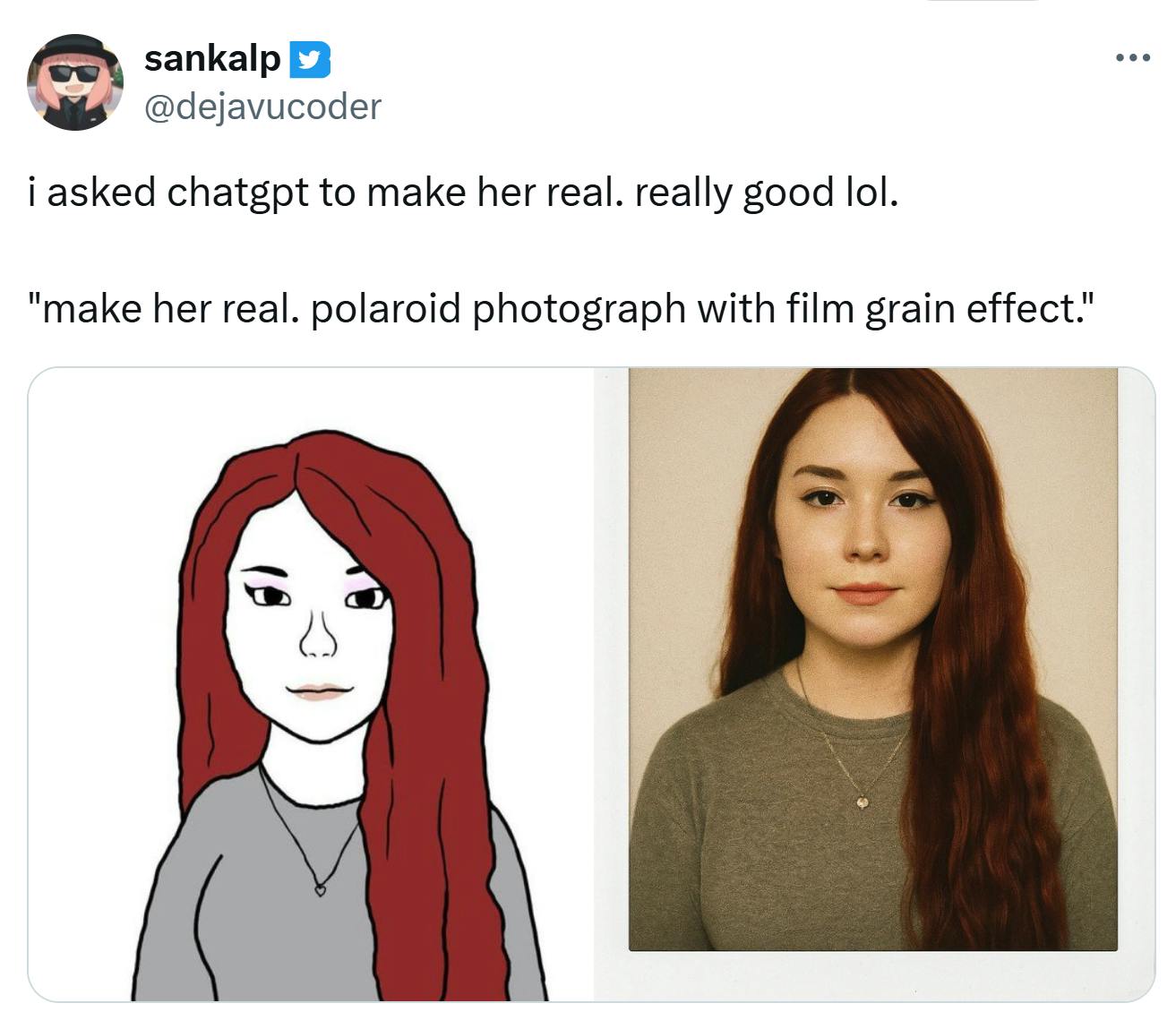
Implications for graphic designers and artists
The integration of AI-driven image generation tools in general causes extreme challenges for graphic designers and artists.

If used correctly, these tools can serve as a source of inspiration for real artwork. They can also expedite the creative process by generating preliminary concepts or styles. There is a historical precedent for it as well, with art exhibits such as Marcel Duchamp’s porcelain urinal or Maurizio Cattelan’s banana duct taped to a wall that sold for $6.2 million, that try to redefine what art can be.
But there is concern about the potential for AI to diminish the demand for traditional artistic skills and loss of creativity generally. This is especially true given the sheer volume of images that an LLM can generate in moments compared to the ideas brought about by Duchamp and Cattelan. As noted in an article on the Social Europe website, “The more we outsource creative work to algorithms, the more we allow creativity, as a faculty in our society, to shrivel.”
By removing the human element from artistic expression, they note, it removes the soul from artwork. “There is a creative stratum in society, in short, that isn’t about artsy superstars but consists of people who keep alive the creative dimension of our human existence.”
What does Hayao Miyazaki think about AI-generated art?
Hayao Miyazaki, the legendary animator and co-founder of Studio Ghibli, has expressed strong disapproval of AI-generated animation. In a 2016 encounter with an AI-generated animation demo, Miyazaki remarked, “Whoever creates this stuff has no idea what pain is whatsoever. I am utterly disgusted. If you really want to make creepy stuff you can go ahead and do it. I would never wish to incorporate this technology into my work at all.” He further stated, “I strongly feel that this is an insult to life itself.”
The internet is chaotic—but we’ll break it down for you in one daily email. Sign up for the Daily Dot’s web_crawlr newsletter here to get the best (and worst) of the internet straight into your inbox.

